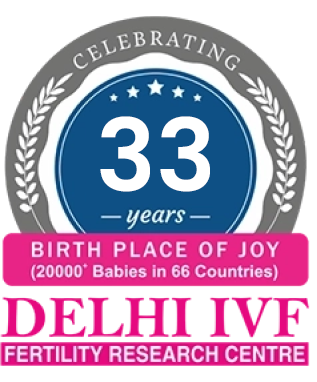What is Social Freezing?
Initially, freezing eggs (oocyte cryopreservation) was intended mainly for women dealing with the possibility of a loss of fertility as a side effect of upcoming cancer treatment, such as chemotherapy, radiation. The term ‘social freezing’ is now commonly used to designate egg freezing for non-medical reasons such as non-availability of right partner to settle down, or for reasons of carrier development.
Egg freezing offers women suffering from cancer the chance to freeze their eggs so that they can have children in the future. Egg freezing is also an option for individuals undergoing IVF, for whom embryo freezing is not possible for social, religious or ethical reasons.
Human egg freezing is a procedure to preserve a woman’s eggs (oocytes). The intention being that the woman can choose the time, to have the eggs thawed, fertilized, and transferred to the uterus as embryos to have a pregnancy at any time in future when she is ready to raise a family.
What is the best time to freeze the eggs?
The best age at which women should freeze their eggs is from 35-37. For best chance of success, of live birth in the future, it is best to freeze eggs before the age of 36.
Guidelines for Social Egg Preservation:
Gradually, an increasing number is women are opting for egg preservation but they are not clear about guidelines for egg preservation.
Eggs should be frozen when you are young, but not too young
The highest live birth rates from frozen eggs are from women who freeze the eggs before they are 30. Most women freeze their eggs in the late thirties and early forties.
For the best chance of success at live birth in the future, it is best to freeze eggs before 36, by doing so, the eggs stored may still be of good quality for freezing and you are more likely to give good results.
It is best to use the eggs within ten years.
Number of Eggs to be frozen for a successful outcome
The number of Eggs to be frozen for a successful live birth depends on the age at which the eggs are frozen. To have a 75% chance of having one live birth, a 34-year-old would need to freeze ten eggs. But a woman undergoing the procedure at 37 would need to freeze 20 eggs, and a woman aged 42 would need to freeze 61 eggs to have the same chance of success.
You might need to have the procedure many times
A woman should seek to freeze around 15 eggs to have a reasonable chance of future pregnancy. However, the number of eggs that can be collected during one cycle of stimulation and retrieval depends on the woman’s age at the time of undergoing the procedure, her remaining ovarian reserve, and how she responds to the stimulation.
Egg / Sperm Freezing for Cancer Patients
Reproductive tract cancers, such as Cervix, uterus, breast in women and testis and prostate in men are on the rise. This may be due to the delay in childbearing age or environmental toxins. There is a trend in India, that more women are affected by cancer at a younger age. This has implication for having children at later ages. However, due improvement in technologies in assisted reproduction, the success rates have been improved.
In couples, where one partner is affected, or single persons who wish to preserve their fertility for later, have the option to freeze eggs or sperms or embryos for use after the treatment or whenever required. The gametes and embryos can be stored for up to 10 years without any harm. Due to the availability of Altruistic Surrogacy as an option can feel safe to raise a family even though she may not be able to carry the child. The cryopreservation especially vitrification has raised new hope for cancer patients. At Delhi-IVF we have been providing these services such as sperm, eggs and embryo preservation by vitrification for more than five years.

 Your Journey to Parenthood Begins with us!
Your Journey to Parenthood Begins with us!